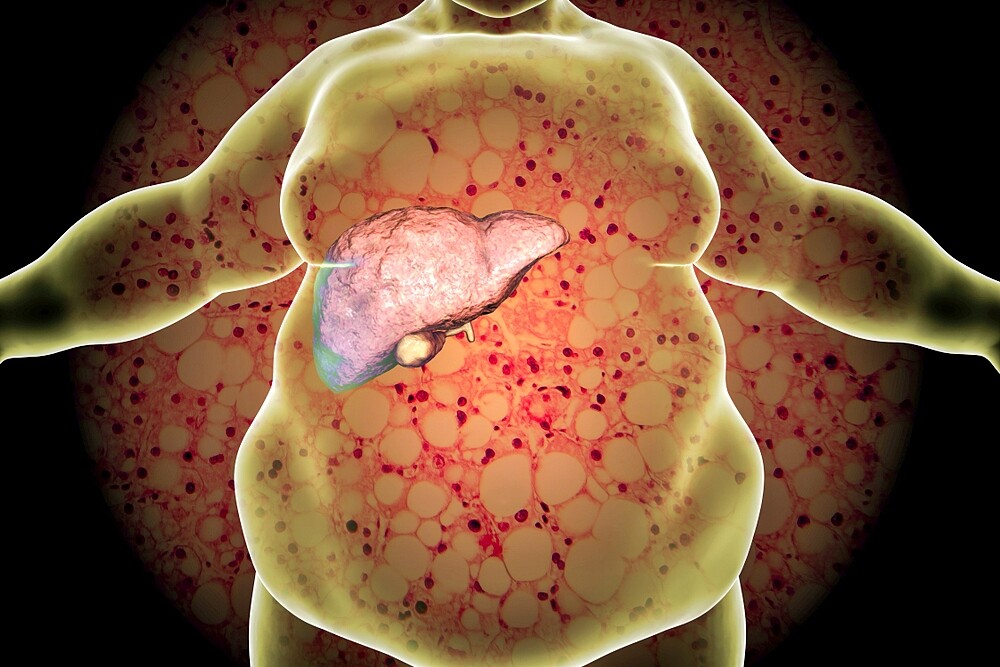Overweight and diabetes are well-known social problems. A fatty liver, however, is often misunderstood. You can find out what’s behind it here.
Nutrition for fatty liver: Introduction
- Fatty liver is the storage of fat in the liver, which is thereby restricted in its function. The cause is usually diet, alcohol and generally an unhealthy way of dealing with one’s own body.
- Fat in the liver is a common problem worldwide. About one in four people are affected, many of them without knowing it themselves. Together with a fatty liver, diseases such as obesity and diabetes also spread.
Why women are particularly affected
Alcohol dehydrogenase is the enzyme responsible for breaking down alcohol. Women have smaller amounts of this enzyme in the liver. Therefore, alcohol is more difficult for women to process and is potentially a greater risk.
Causes
- Alcohol: Alcohol is one of the main factors for fat in the liver. Just half a litre of beer a day can have a damaging effect on the liver in women.
- Metabolic disorder: Especially diabetes, where no proper processing of sugar takes place in the body, is also a cause of fatty liver.
- Nutrition: A balanced diet is essential for our health. This also includes a healthy amount of food that you eat every day. Overweight is usually caused by excessive food intake, just like fatty liver, so that excess fats are stored in the liver.
Nutrition for fatty liver: 4 important rules
- Drinking: Most people drink too little and too calorific drinks. Go for still water and unsweetened tea.
- Complex carbohydrates: Simple carbohydrates such as chips or sweets additionally cause ravenous appetite and contain a lot of calories. Overweight is the result. Rely on unprocessed carbohydrates, preferably whole grain products.
- Eat fewer meals: Give your metabolism breaks when it has no food to digest. If you tend to snack all day long, choose three solid meals.
- Food: If you have a fatty liver, avoid fatty foods as much as possible. Rely mainly on vegetables, fruit and good proteins such as cheese or quark.
2 more tips
- Avoid: Spread onions and cabbage as well as very ripe fruit that contains a lot of fructose. Choose cheeses with a low fat content and avoid UHT milk.
- Examine: To even determine if you have a fatty liver, a liver biopsy, blood count and ultrasound will give you more information. But of course, you should first ask yourself whether your lifestyle is healthy and whether you have symptoms.
For more information about fatty liver, you can check out this article: “Fatty Liver: The Consequence of Poor Nutrition?”


very good and useful information